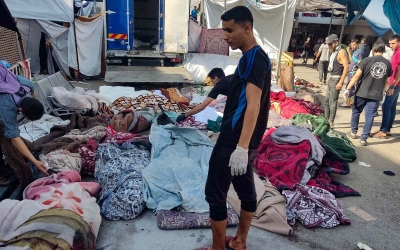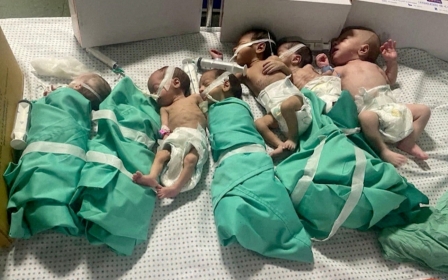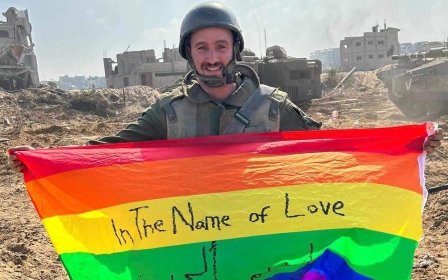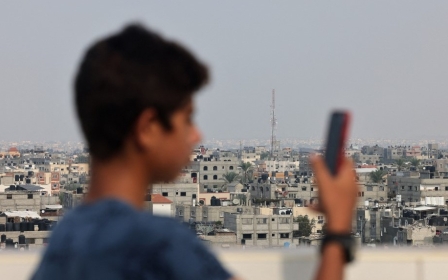Israel-Palestine war: Tributes paid to peace activist Vivian Silver killed in kibbutz attack
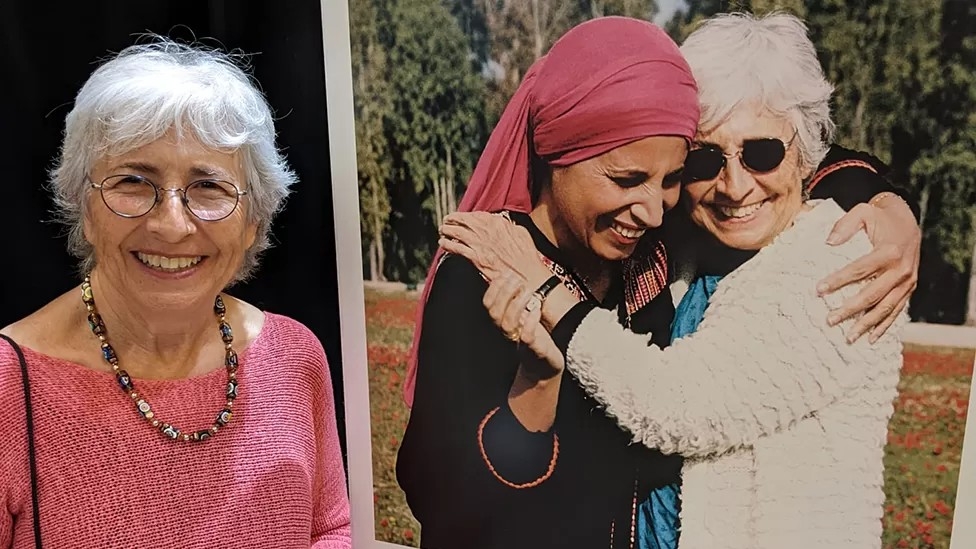
Tributes have been pouring in following the news that Canadian-Israeli peace activist Vivian Silver was confirmed as among those killed during last month’s Hamas-led attack on Israeli communities near the Gaza Strip.
Silver, 74, was a resident of Beeri, one of several kibbutzim attacked by Palestinian fighters on 7 October.
Originally believed to have been among the 240 captives taken to Gaza, forensic teams have instead confirmed that her remains were found in Beeri, making her one of the approximately 1,200 Israelis killed in the attack.
Silver was a committed and prominent peace activist who worked with Palestinians in Gaza and the occupied West Bank, as well as Bedouins in the Negev desert in Israel.
After the 2014 Israeli war on Gaza, she founded Women Wage Peace, a women-led anti-occupation group. She also co-founded the Arab-Jewish Center for Equality, Empowerment and Cooperation, whose acronym Ajeec in Arabic means “I am coming towards you.”
New MEE newsletter: Jerusalem Dispatch
Sign up to get the latest insights and analysis on Israel-Palestine, alongside Turkey Unpacked and other MEE newsletters
Silver served as executive director of the Negev Institute for Strategies of Peace and Development, which encourages collaboration and partnership between Jewish and Arab communities, and was previously on the board of B’Tselem, Israel’s largest human rights organisation.
Thabet Abu Ras, a prominent Palestinian academic and activist with the Abraham Initiative, told Middle East Eye that Silver was “a remarkable woman”.
They met after the outbreak of the Second Intifada in 2000, and, together with Amal Elsana Alh’jooj, founded Ajeec.
“It was a group effort, but she was the driving force behind it,” Abu Ras recalled.
“From the onset, she was deeply involved in projects that connected her with Gaza, where she forged many lasting friendships. Her dedication to peace and human rights was unwavering.”
Follow Middle East Eye's live coverage of the Israel-Palestine war
Abu Ras’s family is from Herdibia, a Palestinian village south of Ashkelon whose residents were expelled by Zionist forces during the 1948 Nakba.
He said Silver was “acutely aware” of the suffering caused by Israel’s occupation of the West Bank and the siege it imposed on the Gaza Strip.
“She actively engaged in the struggles of the Bedouin community in the Negev,” he said, adding that she became particularly active around a decade ago when the highly controversial Prawer Plan development scheme was announced, which threatened to displace some 70,000 Bedouins from their villages in the desert.
“The pursuit of justice, particularly for the Bedouins, was central to her mission. In our discussions with leftist and Zionist Jews, she was a constant ally, always supporting our cause,” Abu Ras said.
“We often shared in each other's social events, reflecting our mutual respect and collaboration. Her passing is a significant loss, particularly in the Negev, where she was a beacon of hope for both Arabs and Jews.”
Abu Ras said his family’s roots in Gaza, where many of them were expelled to in 1948, make Silver’s absence “all the more poignant”.
'The pursuit of justice, particularly for the Bedouins, was central to her mission. In our discussions with leftist and Zionist Jews, she was a constant ally'
- Thabet Abu Ras, Palestinian academic and activist
“Recalling my 83-year-old aunt's experience of the first Nakba, her journey from Herdibia to Jabalia, and now her life in Khan Younis, I see my aunt's tragedy and I see Vivian,” he said.
“I see the tragedies on both sides - the enduring hardships of Palestinians and the profound loss marked by Vivian's death,” he added.
“Vivian was attuned to the struggles on both sides, Israeli and Palestinian, resonating with our shared commitment to peace, justice, and the recognition of the Bedouins and their lands. Her vision for a united Jewish-Arab Palestinian life mirrored my own beliefs. Her loss is profoundly felt.”
Silver’s son Yonatan told MEE on 9 October that he believed she had been taken to Gaza and the last he heard from her was on the morning of the attack.
More than 100 people were killed in Beeri, one of the largest kibbutzim in the area.
Since the attack, Israel has waged an air and ground attack on Gaza that has killed more than 11,200 Palestinians, including more than 4,600 children.
Israeli human rights group B’Tselem, which in 2021 declared Israel an apartheid regime enforcing Jewish supremacy between the Mediterranean Sea and River Jordan, was among those issuing tributes to Silver online on Tuesday. Silver spent several years on the group’s board.
David Zonsheine, board member of B’Tselem and former chairman, told MEE: “This is a very bad time for me. My uncle was murdered on the morning of 7 October, my cousin was taken captive in Gaza, I have friends in Gaza who lost their families, and today I have to deal with Vivian's death.”
Zonsheine said he knew Silver for about 15 years through their human rights work.
“I met a very serious and smart woman, very committed,” he said.
“She realised how broad the struggle is and not only in the West Bank or Gaza but also within Israel.”
Zonsheine described Silver as positive and optimistic - “even though she knew the road was very difficult”. Her involvement with B’Tselem was an “essential” part of transforming the group into the respected human rights force it is today.
“The war did not escape anyone. When a population is attacked no one asks at the door who is being taken,” he said.
“I miss her. She was a symbol. Many people knew her and she was involved in various struggles,” Zonsheine added.
“She went around a lot of places and tried to make amends. Not only did she believe in these issues, she founded organisations and took action.”
This article is available in French on Middle East Eye French edition.
Middle East Eye delivers independent and unrivalled coverage and analysis of the Middle East, North Africa and beyond. To learn more about republishing this content and the associated fees, please fill out this form. More about MEE can be found here.


